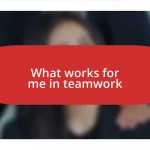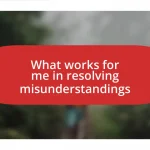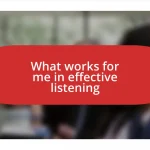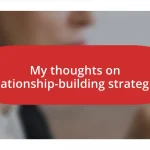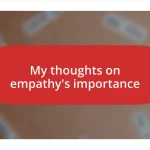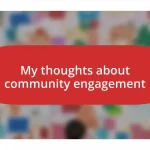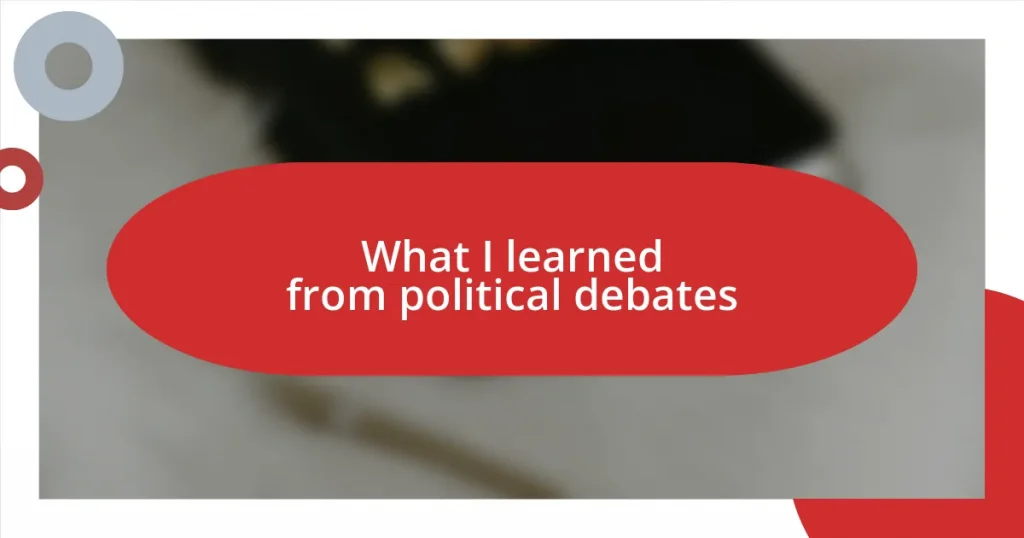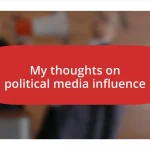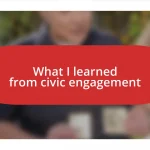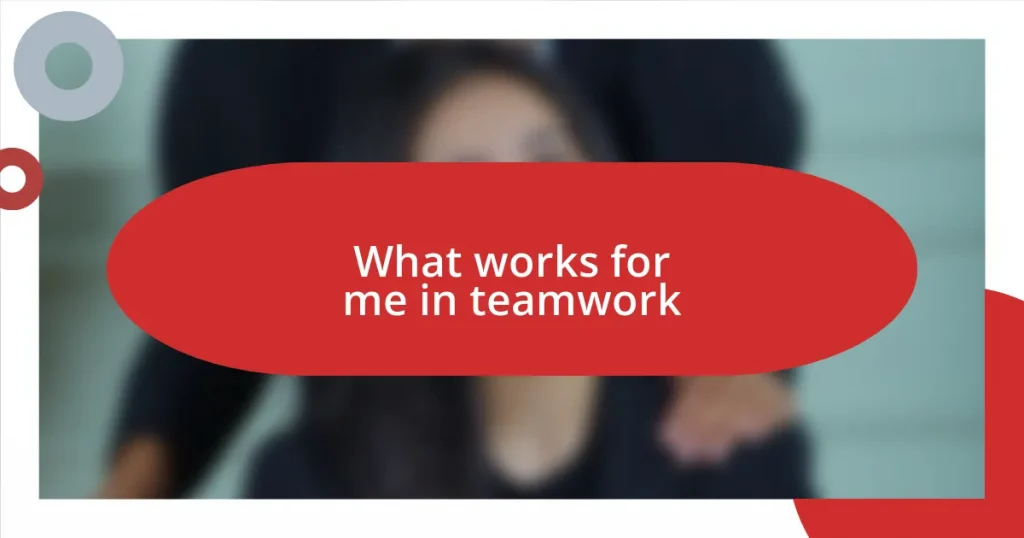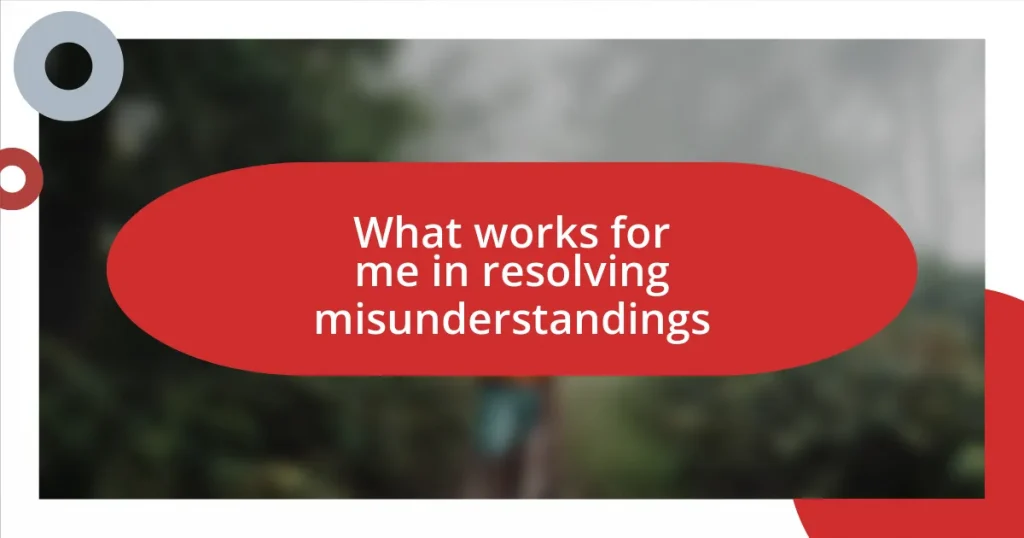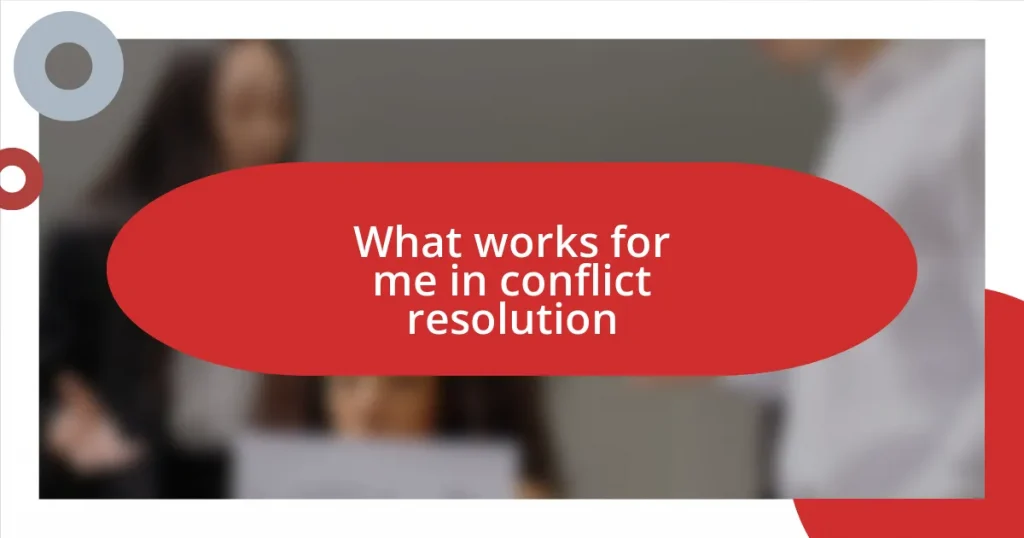Key takeaways:
- Debates are crucial for candidates to present their policies and influence voter perceptions, revealing their character and credibility under pressure.
- Key skills developed from debates include critical thinking, effective communication, and resilience, which enable participants to navigate complex discussions and challenges.
- Evaluating different debate styles showcases the impact of emotional intelligence versus aggression in connecting with audiences.
- Identifying logical fallacies, such as ad hominem and straw man arguments, enhances critical analysis of political arguments and discussions.
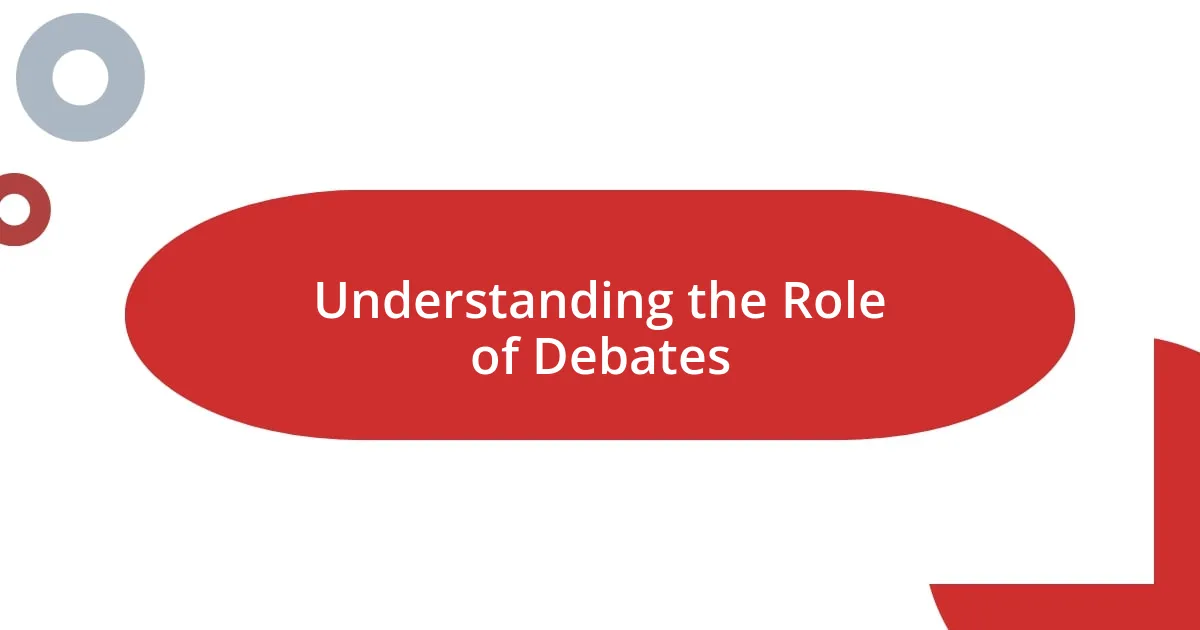
Understanding the Role of Debates
Debates serve as a vital platform for candidates to express their policies and differentiate themselves from their opponents. I remember watching my first presidential debate, feeling the tension and excitement as candidates clashed over key issues. It struck me how these moments could shape public perception and influence voter decisions, making the stakes feel incredibly high.
When I think about the role of debates, I realize they’re not just about who wins or loses; they also challenge our understanding. Have you ever found yourself swayed by a passionate argument that changed your perspective? I know I have. A particularly memorable exchange in one debate had me reconsidering my views on a local policy issue, showcasing the power of well-articulated ideas in swaying hearts and minds.
Moreover, debates bring transparency to the political process, allowing voters to scrutinize candidates’ character and credibility under pressure. I’ve seen how a single moment of hesitation or a smart comeback can define a candidate’s image in my mind, leading me to wonder: how often do we rely on these fleeting moments to gauge character? It emphasizes that debates are not just scripted performances but real moments of truth that matter deeply in the decision-making process.
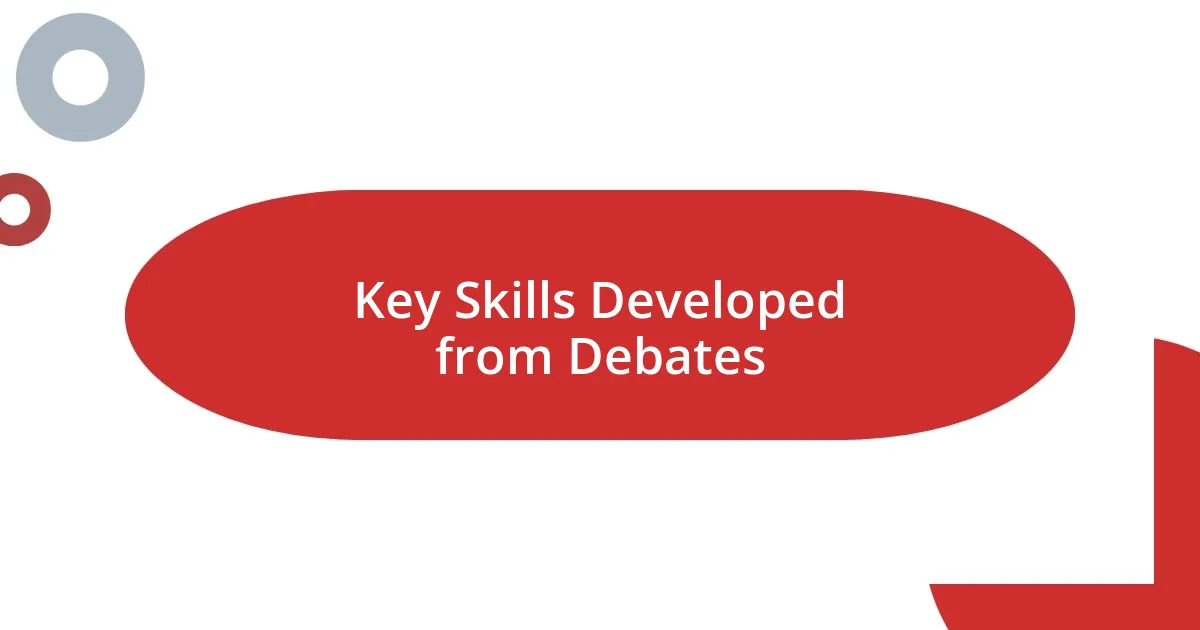
Key Skills Developed from Debates
Engaging in debates has profoundly developed my critical thinking skills. I found myself constantly analyzing arguments, which helped me become quicker at dissecting ideas and understanding underlying assumptions. It’s fascinating how, in the midst of combative exchanges, one can grasp the nuances that may not be immediately apparent. I remember a debate where I was struck by a candidate’s use of facts to challenge a flawed premise. That moment reinforced my ability to recognize solid reasoning amidst the noise.
Another key skill honed through debates is effective communication. Watching candidates articulate their viewpoints under pressure taught me the importance of clarity and persuasion. There was a particular discussion that made me aware of how body language and tone play roles just as essential as the words spoken. Since then, I’ve made a conscious effort to refine my own communication, focusing on not just what I say, but how I say it to engage others effectively.
Lastly, debates foster resilience and adaptability. I learned how crucial it is to think on your feet when faced with unexpected challenges. I recall feeling the adrenaline rush when a last-minute question caught a candidate off guard; the way they regrouped and answered with poise was inspiring. This experience drove home the point that life is often about navigating unforeseen obstacles, and being able to adjust my approach in real-time has been an invaluable lesson.
| Skill | Description |
|---|---|
| Critical Thinking | Analyzing arguments and recognizing underlying assumptions. |
| Effective Communication | Articulating viewpoints clearly and persuasively. |
| Resilience and Adaptability | Thinking on your feet and adjusting to unexpected challenges. |
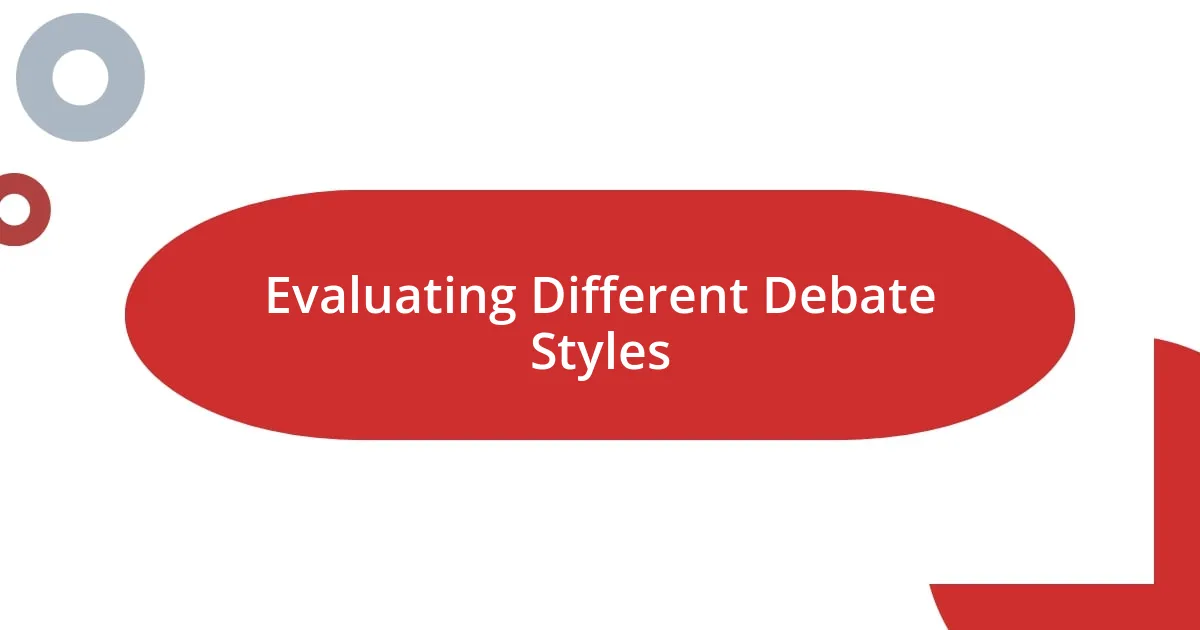
Evaluating Different Debate Styles
Evaluating different debate styles can be quite illuminating. I’ve noticed that candidates often adopt unique approaches that reflect their personalities and strategies. One candidate I watched had a very confrontational style, which at times seemed effective in rallying their base, yet often alienated undecided voters. Conversely, another candidate used a more collegial tone, focusing on empathy and solutions. I found that this gentler approach resonated with many viewers, demonstrating how emotional intelligence can be just as persuasive, if not more so, than sheer rhetoric.
- Confrontational Style: Engages through aggression but risks alienating moderates.
- Collegial Style: Fosters connection and empathy, appealing to a broad audience.
- Informative Style: Focuses on clear facts and data, though may lack emotional engagement.
- Storytelling Style: Leverages personal anecdotes to create relatability and emotional resonance.
- Charismatic Style: Relies on presence and charm, captivating audiences even without deep arguments.
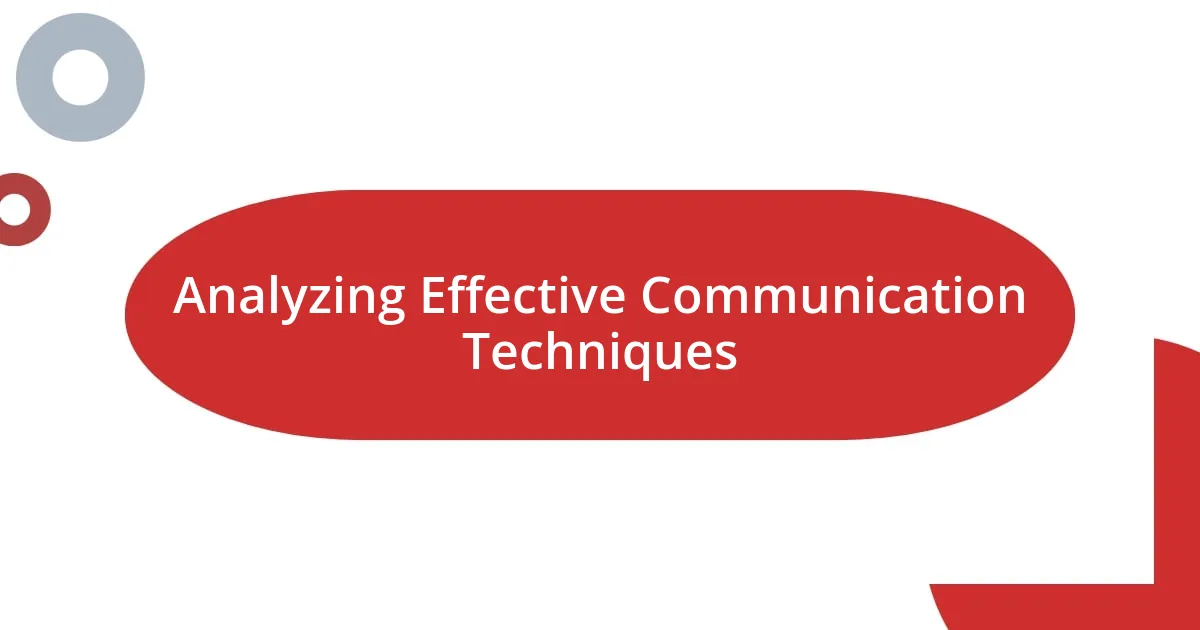
Analyzing Effective Communication Techniques
Effective communication in debates hinges on a candidate’s ability to connect with their audience. I remember watching a debate where one candidate closed their statement with a poignant personal story. It struck me how this approach not only humanized them but also created a memorable moment that resonated with viewers. I often wonder: how powerful can a well-told story be in swaying opinions?
Additionally, clarity of expression is crucial. I’ve seen candidates falter when they overloaded their statements with jargon or complex arguments. A memorable moment for me was when one candidate broke down a complicated policy into simple, relatable terms. This made it easy for the audience to grasp the essence of their proposal, and I’ve since adopted a similar strategy in my communication. It makes me think: how often do we overlook clarity for the sake of sounding knowledgeable?
Lastly, the use of pauses can be transformative. In one debate, a candidate strategically paused before answering a tough question, which demonstrated confidence and composure. This technique not only engages the audience’s attention but also provides the speaker a moment to gather their thoughts. When I incorporated pauses in my conversations, I noticed how it allowed me to convey my message with more impact. Isn’t it interesting how something so simple can elevate our communication?
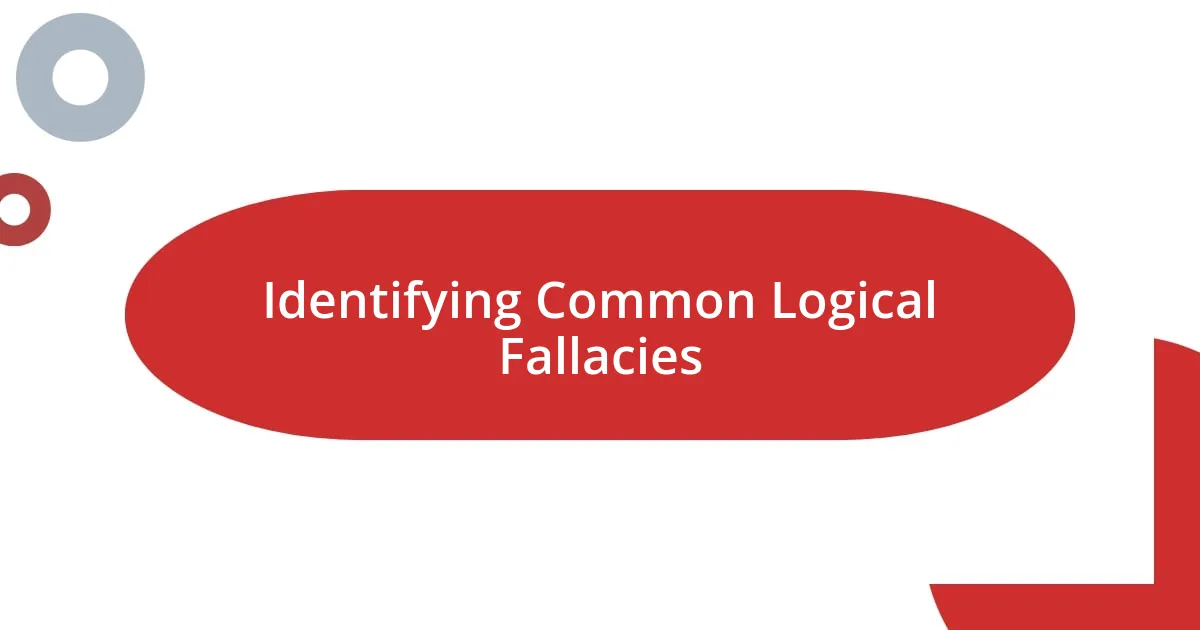
Identifying Common Logical Fallacies
Logical fallacies are common in political debates, and recognizing them can significantly enhance our understanding of the arguments presented. For instance, I recall a debate where one candidate used the ad hominem fallacy, attacking their opponent’s character rather than addressing the issue at hand. It struck me how easy it is to get sidetracked by personal insults, pulling focus away from the real topics that deserve discussion.
Another fallacy that often comes into play is the straw man argument, where one debater misrepresents their opponent’s position to make it easier to attack. I remember when a candidate twisted their opponent’s stance on healthcare into something absurd, and it made me think: how often do we encounter these oversimplifications in our everyday conversations? It’s a reminder that critical thinking is essential for deciphering the truth behind the noise.
Then there’s the appeal to emotion, which can be quite persuasive yet misleading. In one debate, a candidate shared a heart-wrenching personal story about their family’s struggle, aiming to sway the audience without providing solid solutions. That moment had me reflecting on the power of emotional narratives. While they can connect us, I’ve learned that we must be cautious not to confuse emotion with viable policy. Understanding these fallacies helps me engage more thoughtfully in discussions, ensuring I analyze arguments more critically rather than fall victim to clever rhetoric.
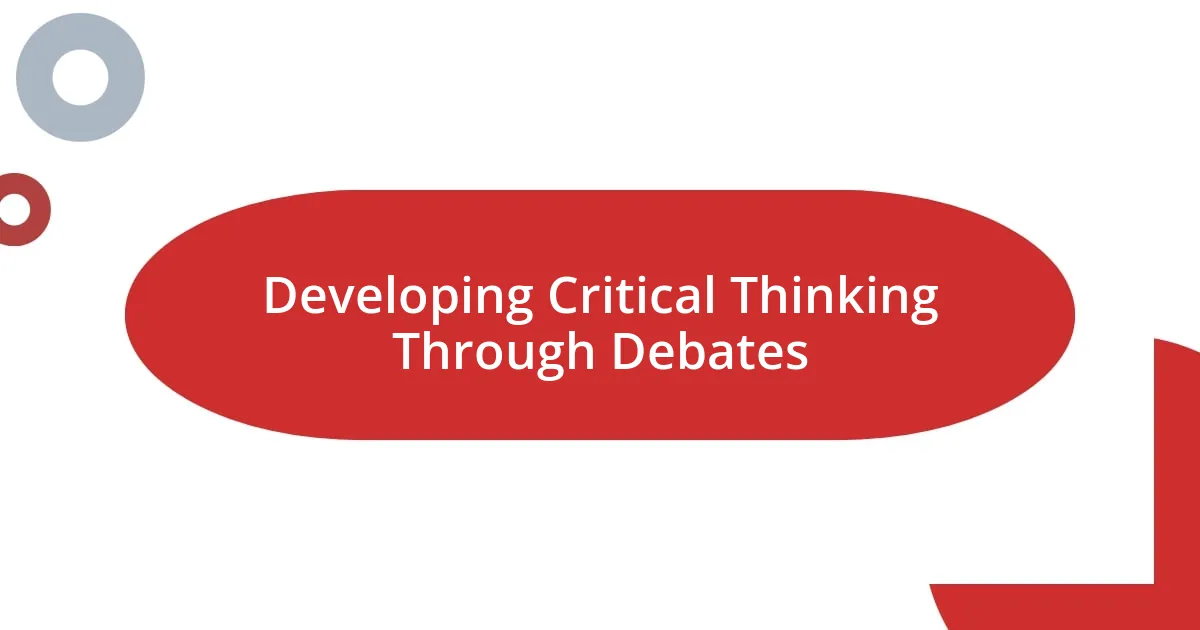
Developing Critical Thinking Through Debates
Engaging in debates has been a transformative experience for me in developing critical thinking. I remember a debate where the moderator tossed a controversial question into the mix. Instead of immediately reacting, I found that taking a moment to analyze the various angles of the issue allowed me to formulate a more nuanced response. It made me wonder: how often do we jump to conclusions without fully exploring the complexities of a topic?
Throughout my experience with debates, I’ve realized that questioning assumptions is vital. I participated in a lively discussion once where everyone seemed to agree on a common point. But when I dared to ask why we believed that, the conversation took an unexpected turn. It opened up a dialogue about underlying biases and values that had gone unexamined. This taught me the importance of not merely accepting popular opinions but instead probing deeper. How challenging was it for everyone to rethink their stance? Yet, in that challenge, growth occurred.
I’ve also discovered the significance of synthesizing diverse perspectives. At a recent debate viewing, I noticed how the candidates framed their arguments based on differing experiences. Reflecting on the depth of their viewpoints helped me appreciate the richness of human experience and how it shapes our understanding of complex issues. I thought, isn’t it fascinating how seeking out these varied perspectives can deepen our critical thinking? Engaging with differing opinions creates a more well-rounded viewpoint, leading to more informed decisions.
